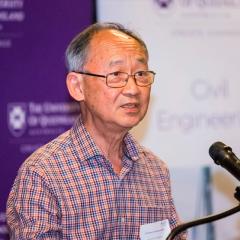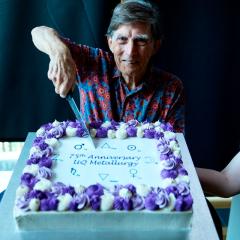Two outstanding UQ mechanical and aerospace engineering graduates received the prestigious Australian Space Generation Innovators Award for their work within the aerospace industry, enabling them to attend the 16th Space Generation Congress(SGC) and the 68th International Astronautical Congress (IAC) in Adelaide earlier this year.
The Space Generation Advisory Council awarded Viha Parekh (Bachelor of Engineering (Hons), 2015) and Karl Domjahn (Bachelor of Engineering (Hons)/Master of Engineering, 2016) the scholarship for them to take their experiences in Adelaide back to their local universities, companies and communities in order to enhance the local space industry and foster passions in future generations.
Ms Parekh, the only Australian in Aviation Week and AIAA's 2016 '20 Twenties', an international award recognising the future leaders of the aerospace industry, currently works at Boeing Aerostructures Australia as a structural engineer.
"As space actors from all over the world gathered for IAC, the eye’s of the world were on Adelaide and the energy at the event was nothing short of this magnanimity," she said.
"To be present for breaking news such as the announcement of a long-awaited Australian space agency and Elon Musk’s presentation on SpaceX’s ambitious plans and former NASA Administrator, Charles Bolden’s talk on international cooperation, was inspiring."
"Hearing the perspectives of global leaders and their visions for the role of space in the future of humanity was inspiring and has helped me on my journey to hone my own vision for a career in the space industry."
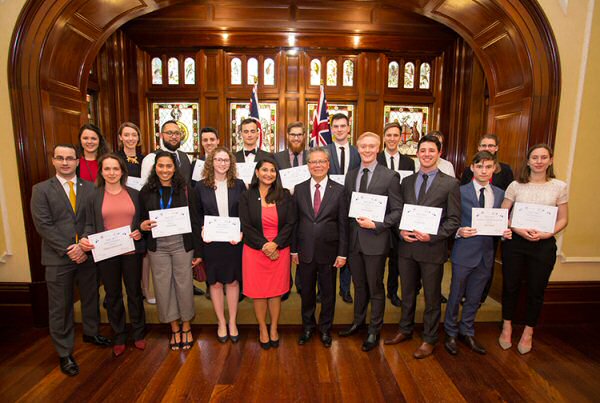
Mr Domjahn, who currently works for Boeing Defence Australia and the only Australian in the 2017 Aviation Week and AIAA's 'Tomorrow's Engineering Leaders: The 20 Twenties', said it was an "incredible" experience to meet the leaders of the space sector and witness them collaborating.
"I was most excited about meeting likeminded people with a passion for space, and learning about the different challenges and intricacies faced by other areas of this sector, such as space law and policy, outside of my immediate field of engineering," said Mr Domjahn.
"It was also a great experience to represent Boeing at our IAC exhibit."
"I work with the team leading the upgrade of the Royal Australian Air Force’s fleet of six Boeing-built E-7A Wedgetail aircraft, and it's awesome to be involved in this project."
"The excitement from students was contagious as we demonstrated how Boeing is using augmented and virtual reality technologies here in Australia."
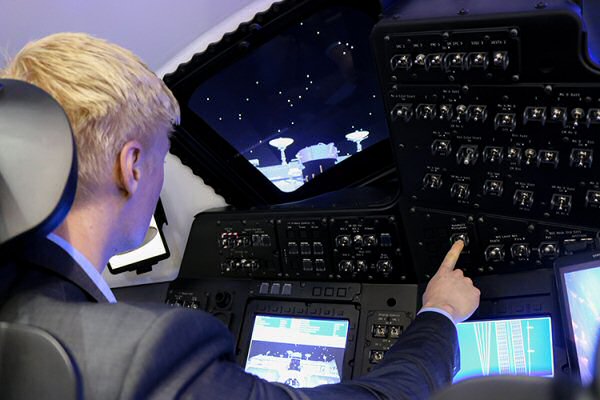
Ms Parekh said studying mechanical and aerospace engineering at UQ had provided her with not only a strong technical foundation, but well-rounded experiences.
"I was fortunate to study abroad at Purdue University (USA) on student exchange, tutor through the School of Mechanical and Mining Engineering as well as School of Mathematics and Physics, complete my honours thesis with UQ’s Centre for Hypersonics, undertake scholarship with UQ’s Centre for Advanced Imaging and participate in a plethora of volunteering opportunities for STEM advocacy, at UQ, which also helped me contribute to the future of my field."
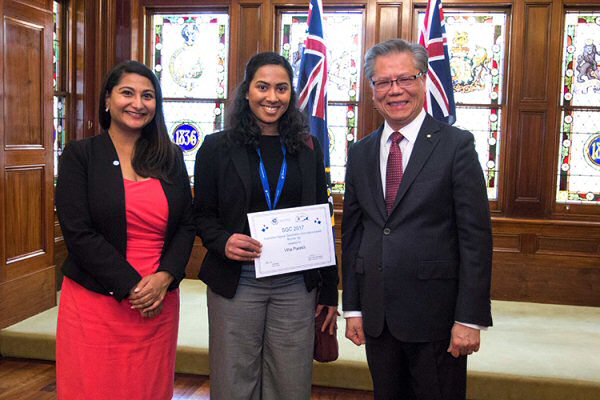
Mr Domjahn said studying at UQ gave him a breadth of knowledge, experience and a strong network of contacts in the aerospace industry.
"UQ gave me opportunities to experience engineering from multiple different angles and perspectives; I conducted research in their world-leading Hypersonics department, studied abroad at Purdue University in the USA and completed my master's thesis with the Mobile Rocket Base at the German Aerospace Centre (DLR).
For more information about studying a Bachelor of Engineering (Honours), specialising in mechanical and aerospace engineering, or a Master of Engineering, visit UQ's Future Students website.


